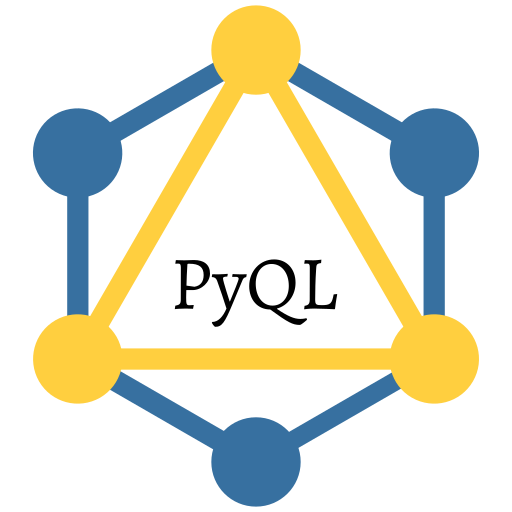Objects¶
Create an instance of pyql.Object:
Example = Object(
'Example',
description='An example object',
fields={
'my_str': str,
'my_int': int,
'my_float': float,
'my_bool': bool,
'my_id': ID,
})
Note
Field names will be converted automatically from snake_case to
camelCase for you, so you can use the right naming convention
in your Python / JavaScript code.
Field from resolver¶
You can define a field quickly by using the Object.field
decorator. Field type and arguments will be picked up automatically by
inspecting type annotations:
Example = Object('Example')
@Example.field('hello')
def resolve_hello(root, info, name: str = 'stranger') -> str:
return 'Hello ' + name
Python types will be converted automatically to GraphQL types.
If you need to use custom types, simply annotate your resolver accordingly.
Resolver returning object¶
Object instances can be instantiated and treated as normal Python
objects.
Example = Object('Example', {'foo': str, 'bar': str})
Query = Object('Query')
@Query.field('example')
def resolve_example(root, info) -> Example:
return Example(foo='A', bar='B')
schema = Schema(query=Query)
Default resolver¶
The default resolver for a field will simply attempt to pick the same-named attribute from the root object.
This way you don’t have to define something like this for every simple field you have on your objects:
@User.field('name')
def resolve_user_name(root, info) -> str:
return root.name
@User.field('email')
def resolve_user_email(root, info) -> str:
return root.email
# ...
Namespace fields¶
Sometimes it’s convenient to “namespace” objects. Problem is, field
resolution will stop when an object resolver returns None, so you
need to define your resolvers like this:
from pyql import ID, Object
User = Object('User', {'id': ID, 'name': str})
Users = Object('Users')
@Users.field('list')
def resolve_list_users(root, info) -> List[User]:
pass
@Users.field('search')
def resolve_search_users(root, info, query: str) -> List[User]:
pass
Query = Object('Query')
@Query.field('users')
def resolve_users(root, info) -> Users:
# Needs to return something other than None, or the resolvers
# for list / search will never be called
return Users()
You can replace the resolve_users definition with:
Query.namespace_field('users', Users)
This allows you to run queries like:
{
users {
list {
id
name
}
}
}
Container types¶
Objects can be “instantiated” to create objects you can return from your resolvers:
MyObject = Object('MyObject', fields={'foo': str, 'bar': str})
@Query.field('example')
def resolve_example(root, info) -> MyObject:
return MyObject(foo='FOO', bar='BAR')
This will also ensure types are understood correctly when using interfaces.
